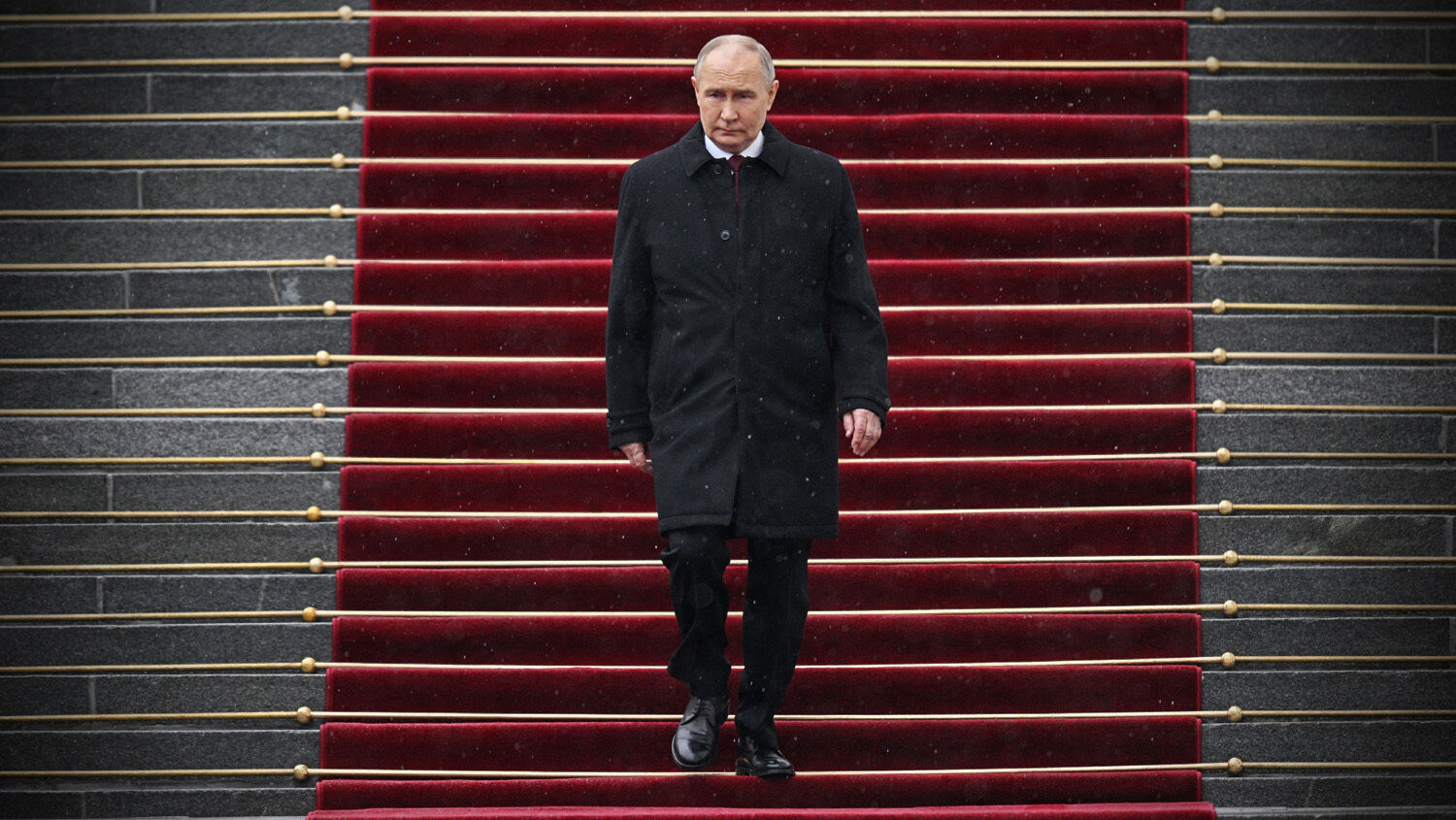
After Syria, Where Will Putin Turn?
America and its allies rejoiced when Syrian dictator Bashar Assad fell on December 7, ending Syria’s close ties with Iran and with Russia, which had spent tens of billions of dollars propping up the dictator.
After this shocking fall, Russian President Vladimir Putin looks to be on the back foot. Russia will likely lose its military presence in Syria, which means losing its Mediterranean naval base and Putin’s launchpad into Africa. It will be difficult for Russia to maintain its African influence now.
This loss came at a bad time. Russia experienced a similar loss in Armenia a few months ago and failed to empower the pro-Kremlin party in Moldova in October despite lavish spending. It has also struggled much more in Ukraine than expected.
Many in the West hope these factors will help end Putin. Western commentators tend to interpret any Russian loss as a sign that Putin is on the way out, but he has grown stronger in spite of these losses.
It seems all Putin has to do is use the strategy he’s always used: shift his focus elsewhere to replace what he’s lost. Russia has grown stronger despite Western sanctions placed on it in response to Putin’s invasion of Ukraine. The International Monetary Fund’s October 22 World Economic Outlook report forecast Russia’s economy has grown more this year than that of the United States, France, Germany and the United Kingdom. This follows on from 2023, when Russia’s economy grew faster than each of the G-7 nations.
How did Putin do this? He strengthened ties with Asian nations to replace what Russia lost from the West. Russia signed record deals with China and India, strengthened military cooperation with North Korea, and tightened its grip over nations like Belarus, Georgia and Kazakhstan.
Putin is already working to replace its loss of Syria. Russia has started moving equipment from Syria and Belarus to Libya, another Mediterranean country. Libya is the only African country with a Russian military presence that Russian cargo planes can reach without refueling.
However, replacing Syria with Libya probably won’t work long term. The only direct flight path from Russia to Libya goes through Turkish airspace. This will likely become problematic as Turkey shifts its allegiance from Russia to Europe. Under Europe’s lead, Turkey was a big part of the reason Assad fell, and it played a similar role in Russia’s loss in Armenia.
If Putin is kicked out of the Middle East and Africa, there is essentially only one place he can turn to maintain and grow his power. And that is exactly what Bible prophecy says will happen.
The Kings of the East
One third of the Bible is prophecy, and 90 percent of it is for the end time, the time we are in today. These prophecies reveal the alliances that will fight in a nuclear World War iii.
Ezekiel 38 prophesies Russia’s fate. “Gog,” “Meshech,” “Tubal” and “Rosh” (New King James Version) are all names that refer to Russia (verse 2). In The Prophesied ‘Prince of Russia,’ Trumpet editor in chief Gerald Flurry writes:
Scholars generally agree that “Gog” is Russia …. In Assyrian and Greek histories, Meshech appears as Musku, Muski or Mushki—all names related to the Russian spelling of Moscow, as you can read in the International Standard Bible Encyclopedia. … On the eastern side of the Ural Mountains lies the city of Tobolsk, named after the Tobol River, a name derived from Tubal. …
Rosh was the ancient name of Russia, once called Rus. Many encyclopedias and commentaries (such as the Jamieson, Fausset and Brown Commentary) recognize this.
The rest of the chapter also names “Magog,” “Persia,” “Cush and Phut” (the correct translation of “Libya and Ethiopia”), “Gomer,” “Togarmah” and “Tarshish.” Ezekiel 38 applies to all of these peoples, meaning the following nations will be allied with Russia:
- China and Mongolia: Magog’s descendants live in China and Mongolia, according to Dr. Herman Hoeh’s Compendium of World History.
- India and Pakistan: Some of Cush’s descendants intermarried with settlers from Persia and migrated to India (and perhaps Pakistan), according to Herodotus. Some of Phut’s descendants also lived here according to Dr. Hoeh. (Some of Cush’s and Phut’s descendants also settled in Libya and Ethiopia, leading to the mistranslation. Other prophecies reveal Libya and Ethiopia will align elsewhere.)
- Japan: Tarshish refers to Japan. This is backed up by multiple sources.
- Others: Gomer and Togarmah also factored into the heredity of Japan, Korea and the peoples of Central and Southeast Asia.
Ezekiel 38 clearly prophesies of a massive Asian alliance led by Putin—the “prince of Russia.” Revelation 16:12 names this alliance “the kings of the east,” and Revelation 9:16 reveals this army has 200 million soldiers. That number could only be produced by a massive alliance of Asian nations.
Syria’s fall does not mean the end of Putin, but it may set the stage for a more eastward focus. The Bible prophesies that major Middle Eastern and African nations will align with either Europe or Iran; Turkey and Syria will align with Europe. In the near future, a European command could be all Turkey and Syria need to block Russia from gaining influence in these regions.
Russia may maintain some grip in the region in the short term due to its alliance with Iran, but the Bible reveals that Iran’s days are numbered. Once it is out of the picture, Asia may be Russia’s last option.
Though it is impossible to know exactly how these prophecies will come to pass, know that they are sure. Putin’s kings of the east are coming, along with the destruction their rise portends.
To learn more about these prophecies, read our free booklet Russia and China in Prophecy.
